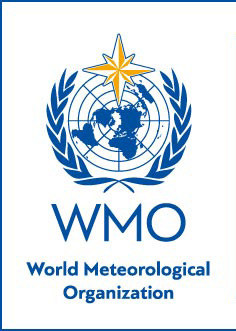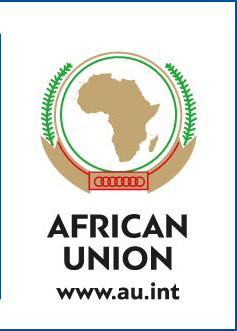Africa faces disproportionate burden from climate change and adaptation costs

Africa faces disproportionate burden from climate change and adaptation costs
Temperature increases in Africa slightly above the global average
Multi-year droughts continued in northwest Africa in 2023
Extreme floods caused severe losses and damages
African countries face increasing climate change bill
Investment in early warnings will protect lives and economies
Abidjan, Cote d’Ivoire (WMO) - Africa bears an increasingly heavy burden from climate change and
disproportionately high costs for essential climate adaptation, according to a new report from the
World Meteorological Organization (WMO).
On average, African countries are losing 2–5 percent of Gross Domestic Product (GDP) and many are
diverting up to 9 percent of their budgets responding to climate extremes. In sub-Saharan Africa, the
cost of adaptation is estimated to be between US$ 30-50 billion annually over the next decade, or 2-3
percent of the region's Gross Domestic Product, says the WMO State of the Climate in Africa 2023
report.
By 2030, it is estimated that up to 118 million extremely poor people (living on less than US$ 1.90 per
day) will be exposed to drought, floods and extreme heat in Africa, if adequate response measures
are not put in place. This will place additional burdens on poverty alleviation efforts and significantly
hamper growth, according to figures cited in the report.
African countries need to prioritize increased investment in National Meteorological and Hydrological
Services and accelerate implementation of the Early Warnings For All initiative to save lives and
livelihoods. This will help mitigate risks, build adaptive capacity, boost resilience at local, national, and
regional levels and guide sustainable development strategies, says the report.
It focuses on climate change indicators and impacts in 2023 – the world’s hottest year on record to
date. It supplements the WMO State of the Global Climate report and is one of a series of WMO
regional reports which provide the observational basis to help drive action and support decisionmaking.
“Over the past 60 years, Africa has observed a warming trend that has become more rapid than the
global average. In 2023, the continent experienced deadly heatwaves, heavy rains, floods, tropical
cyclones, and prolonged droughts,” said WMO Secretary-General Celeste Saulo.
“While many countries in the Horn of Africa, southern and North-West Africa continued to suffer
exceptional multi-year drought, other countries experienced extreme precipitation events in 2023
leading to flooding with significant casualties.These extreme events led to devastating impacts
oncommunities, with serious economic implications,”said Celeste Saulo.
“This pattern of extreme weather has continued in 2024. Parts of southern Africa have been gripped
by damaging drought. Exceptional seasonal rainfall has caused death and devastation in East African
countries, most recently in Sudan and South Sudan. This exacerbates an already desperate
humanitarian crisis,” she said.
WMO, the African Union Commission, United Nations Economic Commission for Africa and the
African Ministerial Conference on Meteorology will release the report in collaboration with partners at
the 12th Climate Change for Development in Africa (CCDA) Conference in Abidjan, Cote d’Ivoire on 2
September 2024.
“The State of Climate in Africa 2023 Report highlights the urgent need for investing in meteorological
services and early warning systems to help adapt to climate change and build resilience in Africa. As
the impacts of climate change continue to manifest globally, the African continent stands at a critical
juncture,” said H.E. Ambassador Josefa Leonel Correia Sacko, Commissioner for Agriculture, Rural
Development, Blue Economy and Sustainable Environment at the African Union Commission.
“Africa faces disproportionate burdens and risks arising from climate change related weather events
and patterns, which cause massive humanitarian crises with detrimental impacts on agriculture, and
food security, education, energy, infrastructure, peace, and security, public health, water resources,
and overall socio-economic development,” she said.
Key messages:
Temperatures: In Africa, 2023 was in the top three warmest years in the 124-year record, depending
on the dataset used. The mean temperature was 0.61° C higher than the 1991-2020 average and
1.23° C above the 1961-1990 long-term baseline.
The African continent has been warming at a slightly faster rate than the global average, at about +0.3
°C per decade between 1991 and 2023. The warming has been most rapid in North Africa, around
+0.4 °C per decade between 1991 and 2023, compared to +0.2 °C/decade between 1961 and 1990.
Southern Africa experienced the lowest warming trend compared to the other sub-regions, around
+0.2 °C/decade between 1991 and 2023.
The highest temperature anomalies in 2023 were recorded across northwestern Africa, especially in
Morocco, coastal parts of Mauritania and northwest Algeria.
Several countries including Mali, Morocco, United Republic of Tanzania, and Uganda reported their
warmest year on record. Extreme heatwaves in July and August affected northern Africa. Tunis, the
capital of Tunisia reached a record of 49.0°C and Agadir, Morocco reached a new maximum
temperature of 50.4°C
The WMO Deputy Secretary-General, Ms Ko Barrett releases the State of the Climate
Report in Africa 2023.The launching, which took place in Abidjan on 02 September 2024, was
moderated by Dr Agnes Kijazi,WMO Regional Director for Africa,


